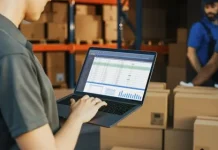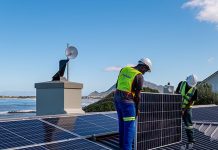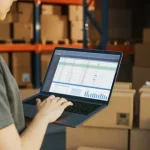Types of Energy Monitoring Meters
Energy monitoring meters can give a perfect measure and tracking of the usage of electricity. Each is helpful for homes, businesses, and factories. It is worth knowing the different types of meters, which enables you to pick the one that suits your needs best. Let’s look at the main kinds:
1. Smart MetersWhat They Do:
- Display your instantaneous electricity usage
- Automatically send the data to your utility company
- Save money by using energy when the rates are cheaper
Who Uses Them:
Those people who want to reduce their energy bills and want to keep track of their use.
2. Submeters
These meters monitor the consumption of electricity for a certain part of the building or specific device.
What They Do:
- Give a record of energy consumption on a room-by-room or appliance-by-appliance basis
- Determine costs for energy fairly among occupants in multi-tenant settings
Who Uses Them:
For apartment buildings, factories, and energy-conscious homeowners.
3. Portable Energy Monitors
These are small units that measure energy use for a single appliance.
What They Do:
- Quick and easy setup and use
- Display energy consumption and give an estimate of costs
- Portable, intended to move around outlets
Who Uses Them:
Any person looking to learn what appliances in the house use the most energy.
4. Power Quality Meters
These meters measure energy usage, but they also check the quality of the power being delivered.
What They Do:
- Detect voltage dips and surges, among other power quality issues
- Help maintain a stable power supply
Who Uses Them:
Manufacturing plants and other companies where poor power quality can interrupt business.
5. DIN Rail Meters
These small meters are mounted inside electrical panels, where they track energy usage.
What They Do:
- Take real-time measurements of electricity consumed
- Can be installed inside electrical panels
Who Uses Them:
Small shops and residential buildings.
6. Net Energy Meters (NEM)
These meters are applied in such areas as solar panels, indicating how much energy you use and how much you feed back into the grid.
What They Do:
- Measure both energy consumed and energy produced
- Calculate credit on surplus energy produced
Who Uses Them:
Residential and commercial users of solar and wind systems.
7. Industrial Energy Meters
These are heavy-duty meters fit for large-scale energy usage applications.
What They Do:
- Capture energy readings from large-scale factories
- Give data for efficiency improvement
Who Uses Them:
Manufacturing industries and commercial establishments.
8. Wireless Energy Monitors
These meters link with apps or websites to display energy usage from another location.
What They Do:
- Give you data that you can see on your phone or computer
- Require little setup and no additional wiring
Who Uses Them:
Smart homes and tech-savvy users.
How to Choose the Right Meter
When choosing an energy monitoring meter, consider what you need to track, the features required, budget, and compatibility:
Tip: Repro Supplies offers quality Energy monitoring meters at competitive prices.
What You Need:
Are you monitoring a single appliance or the whole house?
Features:
Do you need real-time tracking or solar panel compatibility?
Budget:
The prices for energy meters depend on their level of sophistication.
Energy meters save money, make you use electricity wisely, and protect the environment. Choosing the right one will be a good step towards better management of your energy.







